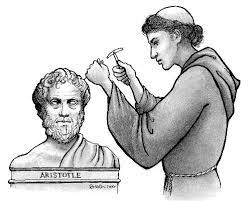The Importance of Paul the Apostle
One scholar summarizes the position of Paul the Apostle in the minds of most people in the world of today in one sentence: “Paul is second only to Jesus as the most important person in the origins of Christianity.” This same author then adds: “Yet he is not universally well regarded, even among Christians.” (The First Paul, p.1)
Before examining why he is not “universally well regarded,” let’s refresh our understanding as to why his importance is second only to Jesus himself.
There are twenty-seven “books” in the New Testament. Half of them have the signature of Paul on them. One half of the whole New Testament! Perhaps even more significant, his “genuine” letters (to be explained later) are the earliest of all the writings in the New Testament, pre-dating the gospels by some thirty years or more. They are the closest we come to the time of Jesus himself.
Paul also was the person who was primarily responsible for expanding the early Jesus community to include Gentiles, as well as Jews, and, in the process, in effect create a new religion that is today referred to as Christianity. To quote The First Paul again: “Paul more than any other figure in the New Testament was responsible for the emergence of Christianity as a new religion.” (p.2-3)
In terms of the history of Christianity, many of the most important teachers, like St. Augustine, were profoundly influenced by Paul’s letters. Augustine himself claims in his landmark spiritual autobiography, Confessions, that his reading of Paul’s letter to the Romans was the turning point in his personal conversion, and was the beginning of his becoming arguably the most influential theologian in the first thousand years of Christianity.
That same letter to the Romans written by Paul significantly contributed to the Protestant Reformation. It became the transformative influence for Martin Luther and the foundation of his theology. John Calvin, the other most important Protestant reformer also made Paul central to his theology. Calvin’s theological descendants include: Puritans, Presbyterians, Baptists, and many other Protestant denominations.
“To say the obvious, Paul matters. But how he matters and how much he matters vary greatly among Christians. There are very diverse understandings of Paul’s importance, message, and character. To some extent, the same could be said of Jesus, for he is diversely interpreted as well. But all Christians agree that Jesus was admirable, attractive, and appealing. Not so with Paul.” (The First Paul, p. 4)
Or, as another scholar puts it: “Paul has provoked people as much in the twentieth century as he did in the first. Then, they sometimes threw stones at him; now, they tend to throw words.” (What St. Paul Really Said, p.1)
To this very day, Catholics and Protestants see Paul’s significance differently. “For Protestants … an interpretation of Paul’s theology and language is foundational for understanding Christianity. Not so for Catholics. Though they see Paul as a saint and his letters as sacred scripture (to the point of being read at most Masses as the second reading), they have not made Paul central in the way that Protestants have.” (The First Paul, p.5)
So, with all of his influence, and all of his unique contributions to the history of Christianity, why are there so many negative impressions of Paul?
According to the author of First Paul, there are at least two answers to this question:
First, his epistles, or letters, unlike the gospels, are difficult to read and understand. “When we read Paul, we are reading somebody else’s mail – and unless we know the situation being addressed, his letters can be quite opaque.” (p.9)
Second, “passages from letters attributed to Paul endorse slavery, subordinate women, and condemn homosexual behavior. They have been used for much of Christian history to justify systems of oppression …. Paul has been used to support systems of cultural conventions oppressive to more than half the human race.” (p.9)
The good news is that modern day scripture scholarship is able to assist us in better understanding who Paul is, what he really is responsible for writing, and how to more clearly understand what he’s saying.
This is so important an issue that I decided to prepare a series of articles on Paul that summarize the results of this scholarship. My hope is that you and I together will better understand the following five things about Paul the Apostle:
First, that not all of the letters attributed to him were actually written by Paul;
Second, that it is essential to place his letters in their proper historical context;
Third, that his messages, his teachings are fully “grounded in his life-changing and sustaining experience of the risen Christ.”
Fourth, that Paul’s writings are Christian Scripture, part of a conduit of divine revelation addressed to the Christian community;
Fifth, that you and I are a part of the same community to which Paul’s first recipients belonged, a part of the same church universal across time and space.
To present these series of articles I will publish, I have borrowed heavily from the very latest and most admired scripture scholarship available.
The books I will be perusing are the following, all written by faith-filled people who are experts in the field of Pauline studies:
Reading Paul, by Michael Gorman, Professor of Sacred Scripture, St. Mary’s Seminary in Baltimore.
The First Paul, by Marcus Borg, Distinguished Professor of Religion at Oregon State University, and John Dominic Crossan, Emeritus Professor of Religious Studies at DePaul University in Chicago
What Saint Paul Really Said, by N.T. Wright, Dean of Lichfield Cathedral, in Staffordshire, England
Romans, by Brendan Byrne, S.J., Professor of New Testament, Melbourne, Australia
First Corinthians, by Raymond R. Collins, Dean of the School of Religious Studies at the Catholic University of America





